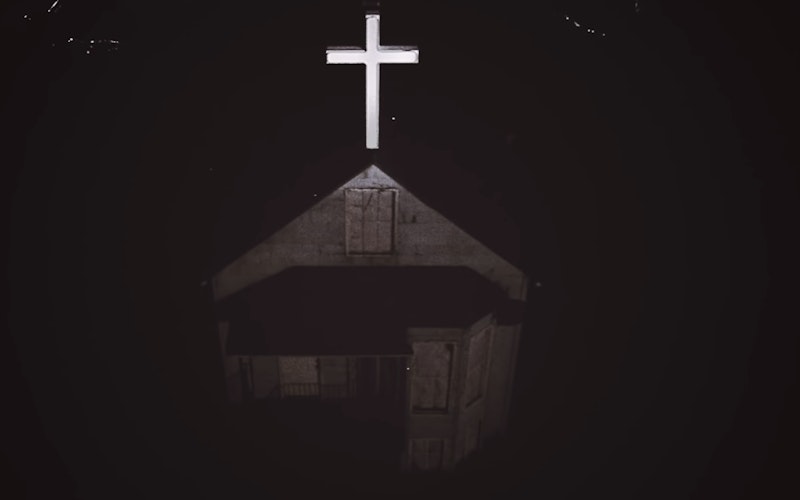
Music
Kanye West's Donda: Is Jesus Still King?
Everybody was waiting for Donda, whether they were a Kanye West fan or not. The buzz surrounding his 10th studio album—its release teased and repeatedly delayed—had arguably overshadowed the album itself, leaving us only to guess what our favorite College Dropout had in store. Now that Donda has dropped, the biggest surprise for me? Ye is apparently still doing the God thing.
“The God thing,” here, is as much about branding as it is belief. None of us knows what Kanye—or anyone, for that matter—truly believes. We can’t speak to his private relationship with God. But in recent years, Kanye’s public identity has been that of a devout Christian charged with spreading the word of God through his music. He did so with his touring Sunday Services, performing renditions of his hits accompanied by praise dancers and a gospel choir. That same choir opens 2019’s Jesus Is King, Kanye’s first attempt at a gospel studio album.
Each track of that album delivers a testimony of faith, as Ye touts the rewards of turning to God. On “Selah” he raps: “Won't be in bondage to any man / John 8-3-3 / We the descendants of Abraham / Ye should be made free / John 8-3-6 / To whom the Son set free is free indeed / He saved a wretch like me.” “Closed On Sunday” encourages us to reprioritize on the Sabbath: “Hold the selfies, put the ‘Gram away / Get your family, y'all hold hands and pray.” With its Christian themes and gospel rhythms, Jesus Is King fulfills Kanye’s promise to use his voice in service to God.
But a new album didn’t necessarily promise another run at gospel music. Unlike with Jesus Is King, the lead-up to Donda didn’t include a tectonic proclamation of faith. Absent was the branding of Kanye as a Christian rapper or Donda as a Christian work. Publicity about the album’s delay centered, instead, on Kanye’s perfectionism, his eccentric and expensive decision to hold listening parties in sports arenas, complete with a full-scale recreation of his childhood home, while he put on the finishing touches. Even the album’s initial cover art—black, no text, no image —signaled a departure from the bright, purplish blue of Jesus Is King. But as it turns out, Donda proves to be a proper follow-up to Kanye’s gospel debut.
Donda is a Christian album, even if it isn’t marketed as one. Indeed, the lack of overt Christian branding may be the point. As with Jesus Is King, God remains the focus. But Donda finds Kanye calling to God from out of the darkness rather than the light.
Donda is a Christian album, even if it isn’t marketed as one.
On “Come to Life,” he asks, “Don't you wish the night would go numb? / I've been feelin' low for so long . . . / I don't wanna die alone.” For Kanye, this could speak to anything from the sudden 2007 death of his mother, Donda West, after whom the album is named, to his split from wife Kim Kardashian earlier this year. “Guess who’s going to jail tonight!” he chants throughout “Jail,” perhaps speaking to a growing sense of isolation and futility. Gone here is the triumphant, choral accompaniment we find throughout Jesus Is King. Donda doesn’t sound like Sunday Service. Perhaps, though, the idea is to keep our eyes on God at all times, not only while we’re "at church."
On “Jesus Lord,” Kanye asks, “If I talk to Christ, can I bring my mother back to life?” In a way, yes, he can, and does. The song “Praise God” opens with a recording of Donda West reciting a poem by Gwendolyn Brooks. “‘Even if you are not ready for the day,’” she reads, “‘it cannot always be night.’” Through communion with his late mother, Kanye is able to embrace the Christian idea of rebirth through communion with God. “We gon' praise our way out the grave, dawg,” he claims later in the same song, “Livin', speakin', praise God / Walkin' out the graveyard back to life / I serve / Follow your word / See with new sight / Into the night.” On “24,” he assures us that “we gonna be OK . . . Know you're alive and God's not finished / I know you're alive, God's not finished.” Donda West lives through her son, but only if he can find his way out of darkness. He—that is, we—can only do so by seeking God’s help. “When we survive,” he raps on “Heaven and Hell,” “know that we blessed / Save my people through the music.” Perhaps that is Donda’s intention all along.
I recall my surprise that Kanye’s secular debut album, The College Dropout, included an unapologetically religious single, “Jesus Walks,” on which he argues, “Radio needs this / They say you rap about anything except for Jesus . . . / If I talk about God my record won’t get played, huh?” All these years later, he’s not only disproved that notion, but has placed praising God at the center of mainstream entertainment. His music has transformed otherwise secular spaces into de facto worship services, attended by believers and nonbelievers alike. For Kanye, it seems, “the God thing” is not just about branding or belief, but the power and the transcendence of God’s message. Perhaps we don’t need Kanye to announce his faith or to serve as a representative of our own. What matters is that his music promotes the value of that faith, and invites the listener to believe.
Topics: Music